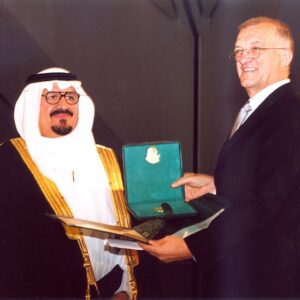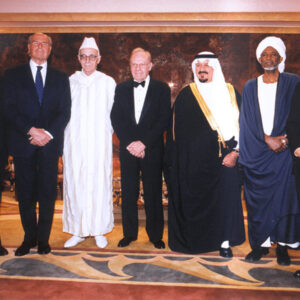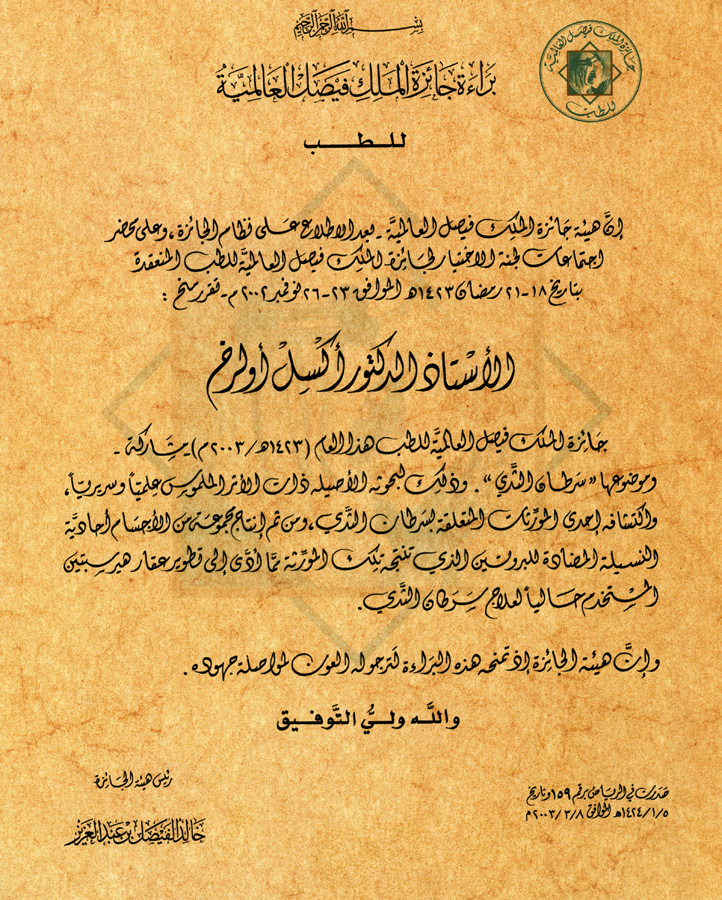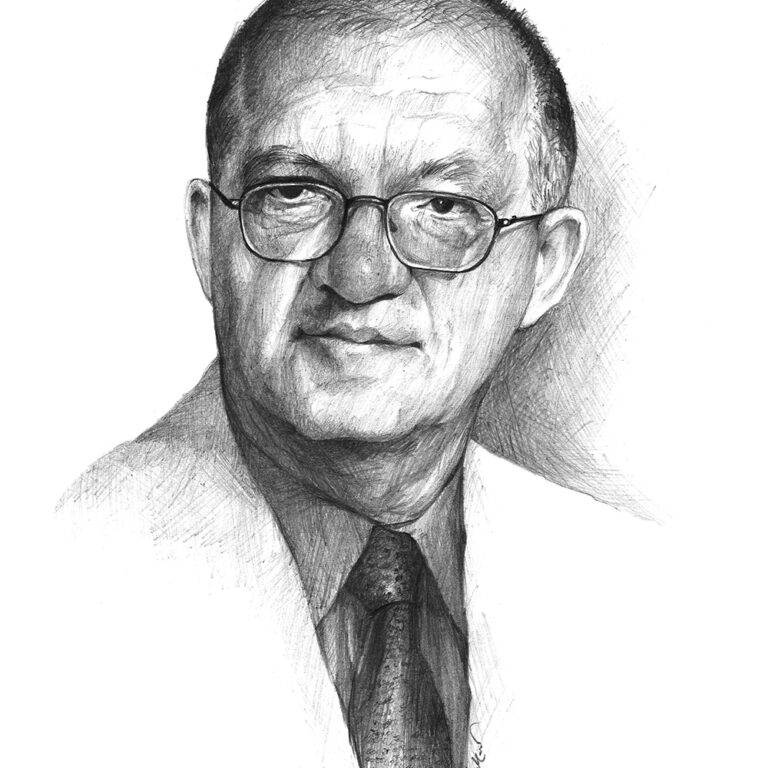
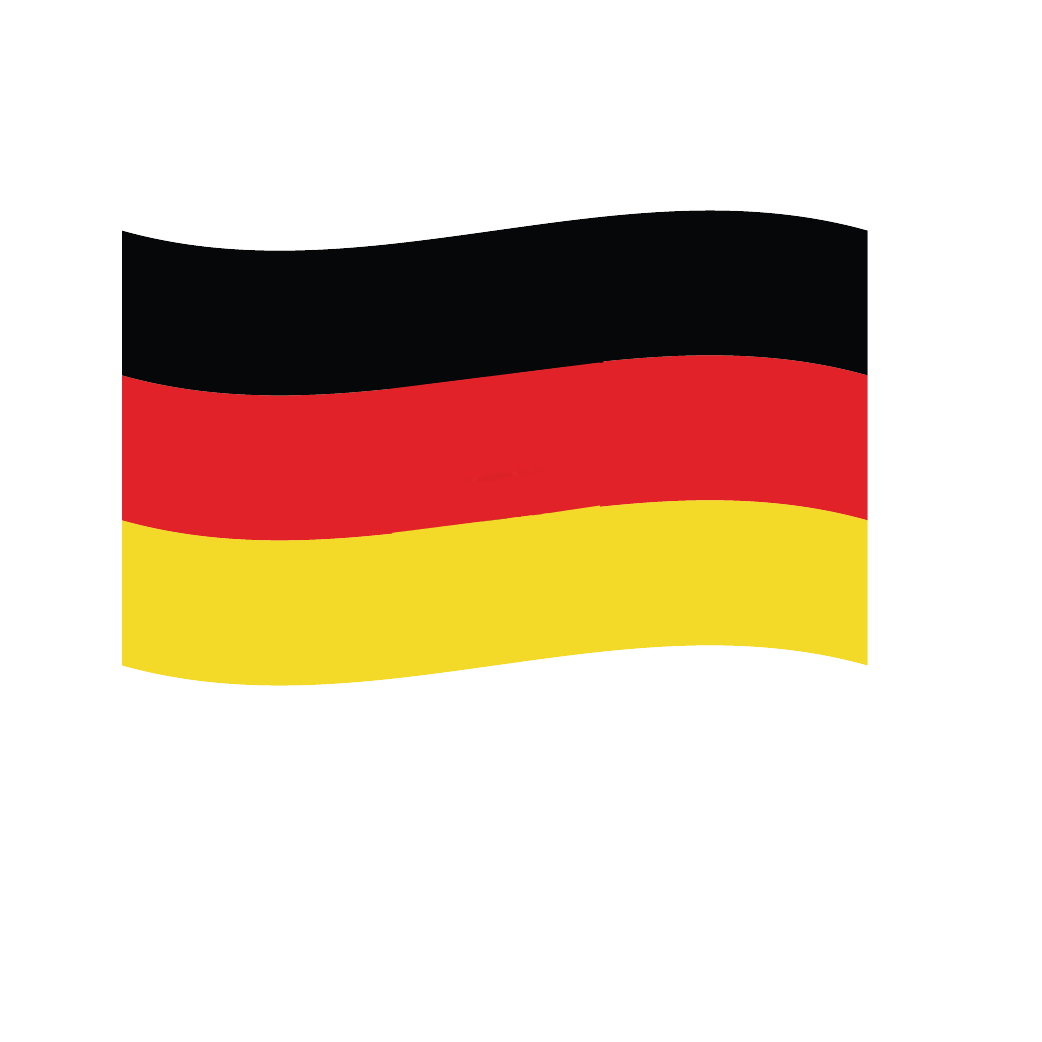
Professor Axel Ullrich
King Faisal Prize in Medicine 2003 Laureate
Topic: "Breast Cancer "
What began as a journey into the biological unknown has brought us to the position where we are today – the ability to create new treatments for diseases that affect hundreds of thousands of patients worldwide

Axel Ullrich studied biochemistry at the University of Tübingen in 1971, and earned his Ph.D. in Molecular Genetics from Heidelberg University in 1975. He then took up a postdoctoral fellowship at the University of California, San Francisco, before joining Genentech, San Francisco, in 1979. In 1988, he became the Director of the Department of Molecular Biology of the Max Planck Institute of Biochemistry in Martinsried, Germany, and was appointed the Administrative Director of the Institute in 1999. Throughout his remarkable career that bridges academia with the private sector, Professor Ullrich co-founded three biotechnology companies: SUNGEN Inc. (USA), U3 Pharma AG (Germany) and Axxima Pharmaceuticals AG (Germany).
Professor Ulrich’s groundbreaking research in the field of signal transduction helped significantly in elucidating major fundamental molecular mechanisms that govern the physiology of normal cells and provided insights into the pathophysiological mechanisms of major human diseases such as Diabetes and Cancer. His efforts to translate his basic scientific discoveries into medical applications led to the development of Humulin (Human Insulin for the treatment of Diabetes), the first therapeutic agent to be developed through gene-based technology, as well as Herceptin, the first target-directed, gene-based cancer therapy for the treatment of metastatic breast carcinoma and SU11248 (Pfizer) a multi-targeted drug for the treatment of GIST and Renal Cell Carcinoma. His scientific work is published in more than 450 articles in international journals, and with over 58000 citations he is one of the ten most cited scientists over the past 25 years worldwide.
Professor Ulrich received numerous awards including: Paul Langerhans Medal of the German Diabetes Society in 1987, Berthold Medal of the German Society for Endocrinology in 1988, the Antoine Lacassagne Prize of the Cancer Society of France in 1991, Gold Medal of the Lorenzini Medical Science Foundation of Italy in 1997, German Cancer Research Prize in 1998, Bruce F. Cain Memorial Award of the American Association of Cancer Research in 2000, and Robert Koch Prize in 2001. He is an Honorary Professor at the Second Military Medical University in Shanghai (China) and the University of Tübingen, and an elected member of the European Molecular Biology Organization and the German Academy of Natural Scientists “Leopoldina.” In 2001, he was named by Time Magazine Europe as one of 25 European tech leaders “who are changing how we work, live and play,” and was also named “International Fellow” of the Garvan Institute of Cancer Research in Sydney, Australia. He also serves on the advisory boards of several internationally renowned institutions in Europe, USA, and Asia.
This biography was written in the year the prize was awarded.
- He held many positions including:
- Scientific Advisor and Program Director of the SOG Project at the Institute of Medical Biology in Singapore in 2007.
- Emeritus Scientific Member of the MPI for Biochemistry in 2016.
- Visiting Scientist and Research Director of the Singapore Oncogenome (SOG).
- He received many awards and honors including:
- Warburg Medal of the German Society for Biochemistry and Molecular Biology in 2005.
- Membership of the American Academy of Arts and Sciences in 2005.
- Prince Mahidol Award of Medicine in 2007.
- Wolf Foundation Prize in 2010.
- Lasker-DeBakey Medical Research Award in 2019.

